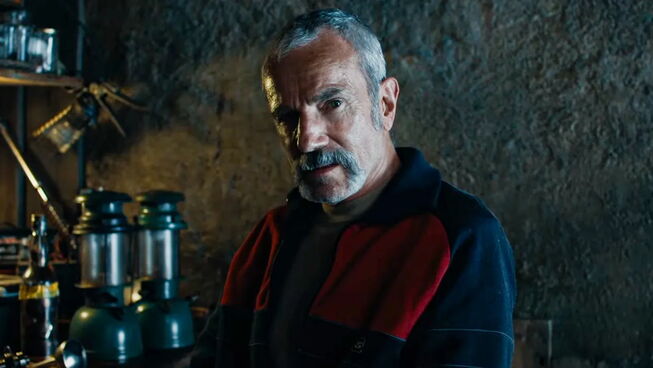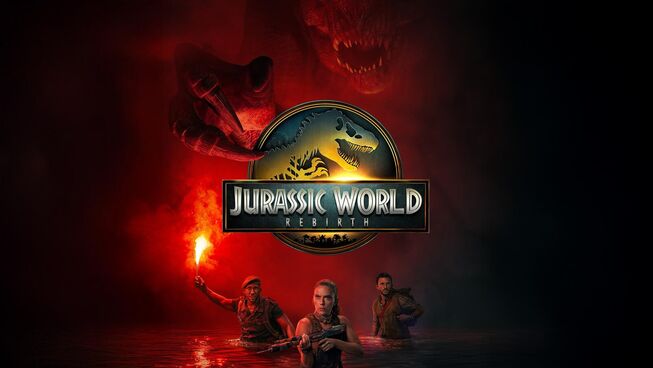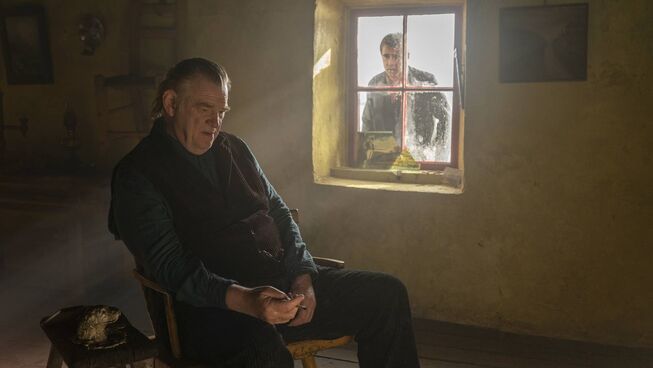
⭐️ ⭐️ ⭐️ (out of 5 stars)
The pattern of Daniel Day-Lewis's career has been defined by extreme highs and breaks as he has won three Academy Awards for acting while taking regular retirements from his work. He has been on a break since his performance in Paul Thomas Anderson's Phantom Thread (2017). Yet he has now been called out of retirement to perform in a production directed by his son, Ronan Day-Lewis.
Ray Stoker (Day-Lewis) has lived a self-induced life of exclusion in the forests of Northern England for two decades. After a series of events while serving with the British special forces in Northern Ireland, he left behind his family and all contact with the outside world. His brother Jem (Sean Bean) takes desperate measures to reconnect with Ray and reach out to the family. The wife, Nessa (Samantha Morton), and son, Brian (Samuel Bottomley), whom the former soldier abandoned, struggle to make sense of their lives and yearn to restore their family connection. As different stories and struggles are unearthed, all involved do their best to find reconciliation.
As co-writer of the screenplay, Daniel Day-Lewis proves why he chose to come back for this project. He gets to work with his son, and since the centrepiece of the story focuses on his character, this becomes a passion project on multiple levels. The Academy Award winner delivers the intensity and emotional tension needed to carry this tale through the highs and lows of this slow-burning, familial historical discovery. Sean Bean and Samantha Morton hold their own as supporting cast members and provide the depth needed to fill the gaps in the silent storyline.
As a first-time director, Ronan may not be on the same level as the directors his father is used to working with, like Martin Scorsese, Stephen Spielberg, or Paul Thomas Anderson. Still, this young talent leans into nepotism to advance his career and showcase his cinematic eye and ability to manage this veteran cast. While Daniel runs things in front of the camera, his son does his best to hold on for the ride. Despite the inexplicable symbolism and inexplicable lulls in the drama, this film proves to be an admirable beginning of this filmmaker's career.
Anemone contains enough plot holes to float a monster sturgeon through, and audiences must wait until the final act to know what is going on in this family. Yet not every really explains the film's title; Ronan Day-Lewis takes full advantage of his father's reputation and skill to give him the leg up he needs in the industry.
Reel Dialogue and Third Space have entered the world of YouVersion: Download the app, dive into the plans, and engage with the Bible in a fresh and exciting way.
REEL DIALOGUE: Is there a time limit on forgiveness?
Ray Stoker has been in hiding for 20 years, and his family needs him to come in from his self-imposed purgatory. In this story, forgiveness is required by all involved for reconciliation to occur and for his son to move on with life.
Films like this begin to show how far people are willing to push forgiveness to the edges. Resentment only hurts the one who holds onto it. Bitterness eats away at the soul and can cause a ripple effect that transcends relationships and time. Only true forgiveness can stop the pain.
Two things to consider on this topic: the time limit on forgiveness and why we should forgive at all. Thankfully, when it comes to Jesus, there is no time limit in seeking and offering the miraculous gift of forgiveness.











